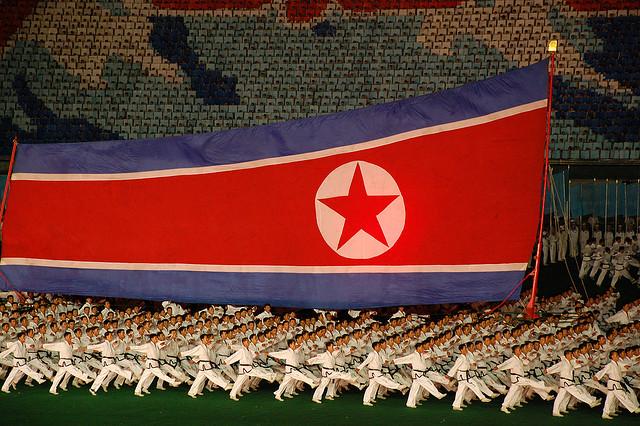North Korea: once more down the diplomatic path?
Posted By Rod Lyon on June 17, 2015 @ 06:00
 [1]
[1]With the world awash with strategic challenges—including Chinese building efforts in the South China Sea, Islamic State’s on-the-ground victories in Iraq and Syria, and the difficulties still confronting the Iranian nuclear deal—North Korea probably hasn’t received its due level of attention over recent months. But a lot’s been happening, so it’s worth bringing readers up to date.
First, there’s been a new level of consensus on the increasing nature of the threat. Both American and Chinese assessments point to a substantial expansion of the North Korean nuclear arsenal in coming years. In late February the US Institute for Science and International Security published a report [2] providing three scenarios for the future of the North Korean nuclear program. Estimates of the number of nuclear warheads in 2020 range from about 20 to 100. The latest Chinese assessment [3], published in late April, also points towards a larger arsenal than most analysts have previously thought. The Chinese believe North Korea might already have 20 nuclear warheads, and that number might double by 2016 and double again by 2020.
Second, there’s been a new wave of interest in North Korean efforts to miniaturise its nuclear warheads—an important development, if true, since miniaturisation is key to deployment of warheads atop ballistic missiles. Miniaturisation has been a topic of contention [4] before, of course, and the evidence still seems too slim to draw firm conclusions. Still, Pyongyang has done what it can to fan that interest by claiming progress [5] in just that area.
Third, there’s been the North’s advertisement of a new submarine-launched ballistic missile capability—a claim greeted with a degree of scepticism [6] by most analysts. Building a reliable SLBM capacity typically takes years, even for rich great powers; and if the recent photographic evidence of a North Korean missile rising from the salty blue can be taken at face value at all, it seems most likely merely to demonstrate ejection from an underwater platform. But positioned alongside reports that the chief of the North American Aerospace Defense Command believes North Korea already has an ‘operational’ [7] intercontinental ballistic missile capability, the claims have excited a degree of apprehension [8] about the pace of delivery vehicle development that the North is achieving.
Alongside those developments, there have been a set of political signals about a possible revival of the Six Party Talks. Five of the parties—all but North Korea—got together [9] recently in the margins of a separate event in Tokyo. And media reports suggest that an invitation [10] has been extended to Pyongyang to return to the negotiating table. The timing—at least in one sense—is propitious: with the talks with Iran scheduled to conclude by the end of June, perhaps diplomatic momentum can be transferred to the North Korean problem at that point. But in another sense, a decision to venture once more down the diplomatic path involves a delicate judgment about North Korean politics: that Kim Jong-un’s regime is sufficiently established to be able to negotiate with confidence.
Moreover, there’s another factor: is Pyongyang willing to find a negotiated solution to its nuclear program? That’s not a new question either. We’ve been down this path before, with mixed results. The ‘freeze’ [11] that resulted from the 1994 negotiations had some utility, but in the long run it gave Pyongyang time to build a uranium enrichment program. The promising Joint Statement [12] agreed at the fourth round of the Six Party Talks in 2005 didn’t bear much fruit: it didn’t stop North Korea conducting a nuclear test in 2006. And the ‘Leap Day agreement’ [13] in 2012, declaring a moratorium on further nuclear and missile tests testing certainly didn’t constrain North Korean testing of satellite launcher technology—essentially missile technology in civilian guise—nor a nuclear test in February 2013.
I suppose the bigger question is not whether a diplomatic solution has proved fruitless before, but whether it’s a viable pathway now. Are we better off with another round of talks or not? Deciding that probably turns on what sort of outcome we might realistically expect. We shouldn’t expect to roll back the North Korean nuclear program to the same point as Iran’s. Iran is a long way behind North Korea, which has mastered plutonium reprocessing and—probably—high enrichment of uranium. Pyongyang’s conducted three nuclear tests; Tehran none. So what is it we’re expecting the North to agree to? Comprehensive, verifiable and irreversible dismantlement seems a distant goal. Previous attempts to freeze the program or constrain testing haven’t been successful. Joint statements have proven ineffective. With Pyongyang advertising its recent ‘progress’ on its nuclear arsenal, perhaps it’s bidding up the price of any negotiated settlement. But there’s also another explanation: it has no serious intention of trading away its weapons.
Article printed from The Strategist: https://aspistrategist.ru
URL to article: /north-korea-once-more-down-the-diplomatic-path/
URLs in this post:
[1] Image: https://aspistrategist.ru/wp-content/uploads/2015/06/1028111184_d35cc51c6b_z.jpg
[2] a report: http://isis-online.org/uploads/isis-reports/documents/North_Korea_Nuclear_Futures_26Feb2015-Master-ISIS_Final.pdf
[3] latest Chinese assessment: http://www.wsj.com/articles/china-warns-north-korean-nuclear-threat-is-rising-1429745706
[4] a topic of contention: http://38north.org/2015/02/jlewis020515/
[5] claiming progress: http://www.bbc.com/news/world-asia-32807774
[6] a degree of scepticism: http://guests.armscontrolwonk.com/archive/5198/back-of-the-envelope-on-the-dprks-new-slbm
[7] ‘operational’: http://www.janes.com/article/50510/us-military-views-north-korean-icbm-as-operational
[8] a degree of apprehension: http://csis.org/publication/north-korean-slbm-launch
[9] got together: http://www.japantimes.co.jp/news/2015/05/29/national/north-korea-absent-five-nations-huddle-nuclear-threat-china-russia-nix-sanctions/#.VXkj5fmqpBc
[10] invitation: http://www.koreaherald.com/view.php?ud=20150601000701
[11] ‘freeze’: http://www.nti.org/treaties-and-regimes/us-dprk-agreed-framework/
[12] Joint Statement: http://www.state.gov/p/eap/regional/c15455.htm
[13] ‘Leap Day agreement’: http://www.reuters.com/article/2012/03/30/us-korea-north-usa-leap-idUSBRE82T06T20120330
Click here to print.